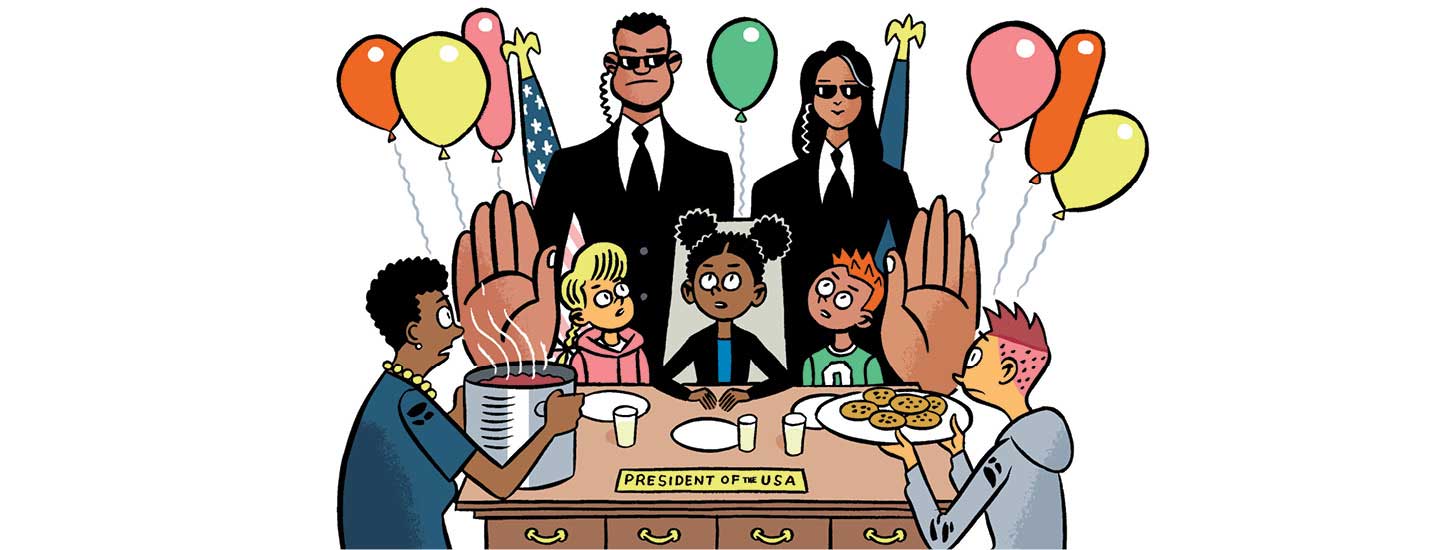You’re the new president of the United States, and you just survived your first week on the job. It’s time to celebrate! You invite your family and friends to the White House for dinner. Your mom will bring chili. Your best friend is baking cookies. Just thinking about the homemade spread makes your mouth water.
But then your aide reminds you that no outside food is allowed into the White House—especially not anything that you might eat. In fact, every bite of food you consume must be prepared under the watchful eye of the Secret Service, a group of federal law enforcement officers whose job is to protect you 24/7.
That may sound extreme, but you are the country’s VIP now—in charge of running the nation. Your power, though, has limits. Some presidential restrictions are outlined in the U.S. Constitution. Others, like no outside food in the White House, have been added over time—out of tradition or to keep America’s top leader safe.
Can you sort the presidential do’s from the don’ts? Keep reading to take our quiz.

